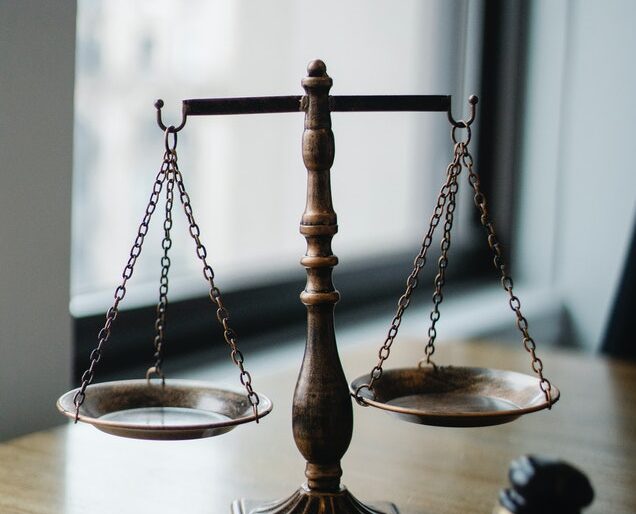What Is Wrongful Trading? How To Recognise It In Your Business
January 29, 2021
As expert insolvency practitioners, the team at Hudson Weir are well-placed to identify wrongful trading in your business.
Even experienced company directors come to us looking for clarity around what wrongful trading is, for guidance as to whether they are committing it, and what to do about it.
Read on for our overview on this subject, and please do not hesitate to get in touch if you need help recognising it in your business: when it comes to wrongful trading, time is of the essence.
What is wrongful trading?
Wrongful trading became an article of civil law in the Insolvency Act 1986 and applies to a current or former director of a company that has become insolvent.
Specifically, section 214 of the Act states wrongful trading has taken place if a director "knew, or ought to have concluded that there was no reasonable prospect of avoiding insolvent liquidation" yet did not take "every step with a view to minimising the potential loss to the company’s creditors".
It is your responsibility, as the director, to put your creditors’ interests first.
In other words, if your company is evidently destined for insolvency and yet you continue to trade as before, you may be wrongfully trading.
Is wrongful trading fraudulent?
No, it is not.
We tend to see wrongful trading take place out of false hope, with directors wrongly believing a spiralling business will turn a corner and move back into the black.
There is no aim by the director to defraud creditors – simply a failure of judgement or recklessness.
In a case of fraudulent trading, the director(s) continue to trade with no intention of repaying their creditors. It is a highly serious offence and necessitates significant evidence.
Wrongful trading is a far more common offence and generally comes with less serious repercussions.
Please note, a fraudulent trading order will likely only come about after an investigation for wrongfully trading is well underway.
What are the consequences of wrongful trading?
The consequences of wrongful trading can be severe.
As part of the liquidation procedure, the liquidator will review the actions of the director(s) over the previous three years of trading.
If wrongful trading is revealed and substantiated, those implicated may be disqualified from directorship under the Company Directors Disqualification Act 1986 for up to 15 years.
On top of this, the director(s) may be made liable for their company’s debts from the point that insolvency was evident, as well as ordered to pay heavy fines.
Prison sentences tend to be consequences of fraudulent trading.
Be aware that these significant ramifications can also apply to de-facto directors and shadow directors (both forms of unofficial directors). Read our blog to learn more about what a shadow director is and their liability during insolvency.
How to recognise wrongful trading in your business
As mentioned, wrongful trading isn’t necessarily a wilful act. Directors may slip into trading wrongfully without spotting the signs it is on the horizon, or that they are in fact already committing it.
There isn’t an exhaustive list, but some common signs of wrongful trading include:
- Failing to pay PAYE and NIC and allowing it to consistently increase
- Neglecting to file annual returns and audited accounts at Companies House
- Improper VAT management resulting in incremental arrears
Other actions that could be used to evidence wrongful trading in your business are perhaps even more personally damning for directors.
These include directors paying themselves untenable salaries from the company or prioritising the repayment of a director loan to the company ahead of other creditors.
The most tell-tale sign of wrongful trading links back to our earlier definition: taking credit from suppliers and/or deposits from customers when there was ‘no reasonable prospect’ of paying the creditor on time or providing the product or service to the customer.
If you believe your company is engaging in any of these actions, it’s important you speak to an insolvency professional urgently.
Coronavirus and wrongful trading
As a result of the coronavirus pandemic, new legislation has been pushed through allowing some extra leeway regarding wrongful trading.
With the situation impossible to predict, directors will have reduced liability for continued trading. Given the unprecedented nature of the pandemic, this seems reasonable.
However, do note that if the various business-support schemes launched by the Government since the initial UK-wide lockdown (e.g. loans) are used to simply prolong the lifespan of a failing business, this may mean a charge of wrongfully trading.
How to avoid facing a charge for wrongfully trading
We understand that directing a business is tough, and even with best business practices in place, a volatile market can leave a company staring at insolvency.
Being proactive can go a long way to protecting a director from liability in this situation.
If your company’s accounts forecast insolvency – act straight away.
Engaging an insolvency practitioner
There are a range of company debt solutions available to a struggling business, such as a Company Voluntary Arrangement which allows a company to continue trading while paying back creditor debts.
It is necessary to engage an insolvency practitioner as early as possible in the process.
The business insolvency team at Hudson Weir is highly specialised, incredibly experienced and focus upon generating fair and swift solutions for all parties.
For more information and to discuss your company in more detail, do get in touch for a no-obligation chat.













